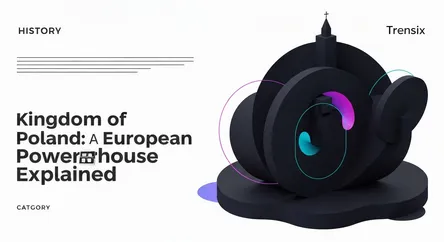History
Kingdom of Poland: A European Powerhouse Explained

Discover the Kingdom of Poland, a dominant medieval European power known for its unique political system and rich cultural heritage that shaped a nation.
What is it?
The Kingdom of Poland (Polish: Królestwo Polskie) was a Central European monarchy that existed from 1025 until 1795. Its history began with the coronation of Bolesław I the Brave of the Piast dynasty. The state's first capital was Gniezno, later moved to Kraków. Following a period of feudal fragmentation, the kingdom was reunified and reached its zenith under the Jagiellonian dynasty. In 1385, a personal union with the Grand Duchy of Lithuania was formed, which evolved into the Polish-Lithuanian Commonwealth in 1569. This unique elective monarchy, governed by its nobility (szlachta), became one of the largest and most populous states in 16th and 17th-century Europe before its eventual decline and partitions by neighboring empires.
Why is it trending?
Interest in the Kingdom of Poland is often renewed due to significant historical anniversaries, such as the millennium of Bolesław I's coronation in 2025. This period of history is crucial for understanding the deep roots of Polish statehood and sovereignty, a topic of contemporary relevance in European geopolitics. The kingdom's unique political system, known as the "Golden Liberty," where the nobility elected the king, continues to fascinate historians and political scientists. Furthermore, its long history as a major crossroad between East and West, and its multicultural and multi-religious society, offer historical parallels to modern discussions on diversity and governance in Europe.
How does it affect people?
The legacy of the Kingdom of Poland profoundly shapes modern Polish national identity, culture, and political consciousness. Its historical borders and struggles for independence against powerful neighbors have left a lasting imprint on the nation's character and foreign relations. The period is remembered as a golden age of Polish culture and power, contributing to national pride. The traditions of self-governance and resistance to authoritarianism, rooted in the Commonwealth era, have influenced Polish political movements for centuries. For people of Polish descent and those in neighboring countries like Ukraine, Lithuania, and Belarus, the kingdom's history is a shared, though sometimes contested, heritage that is fundamental to understanding the region's complex past.